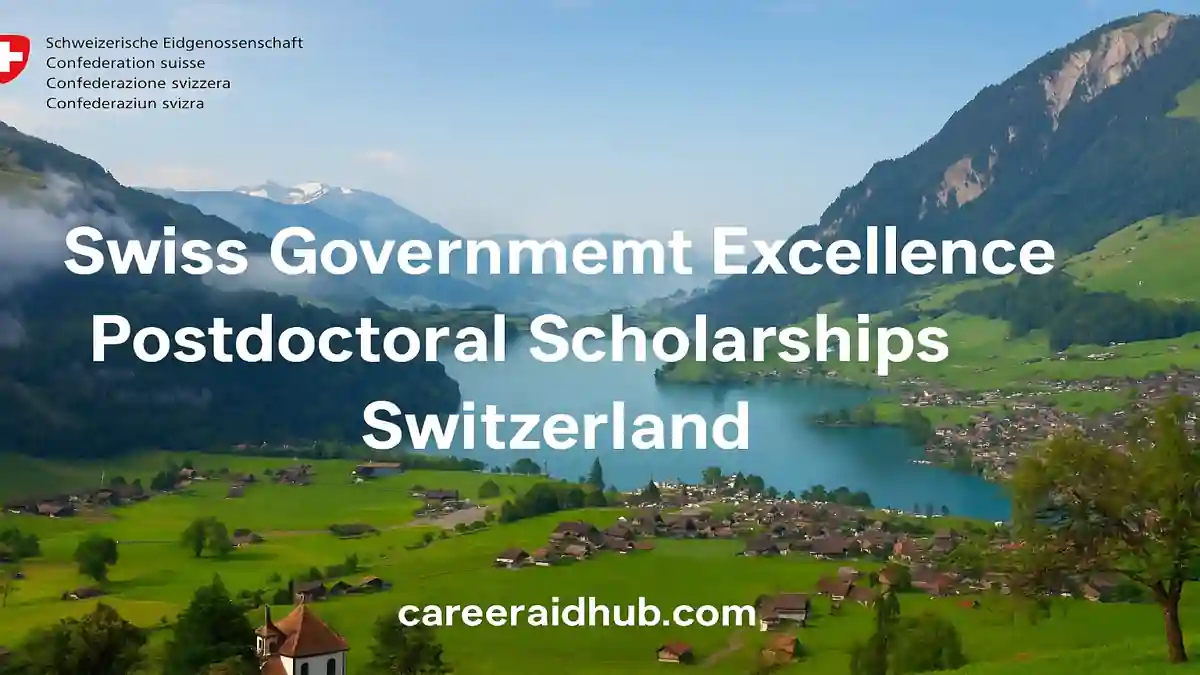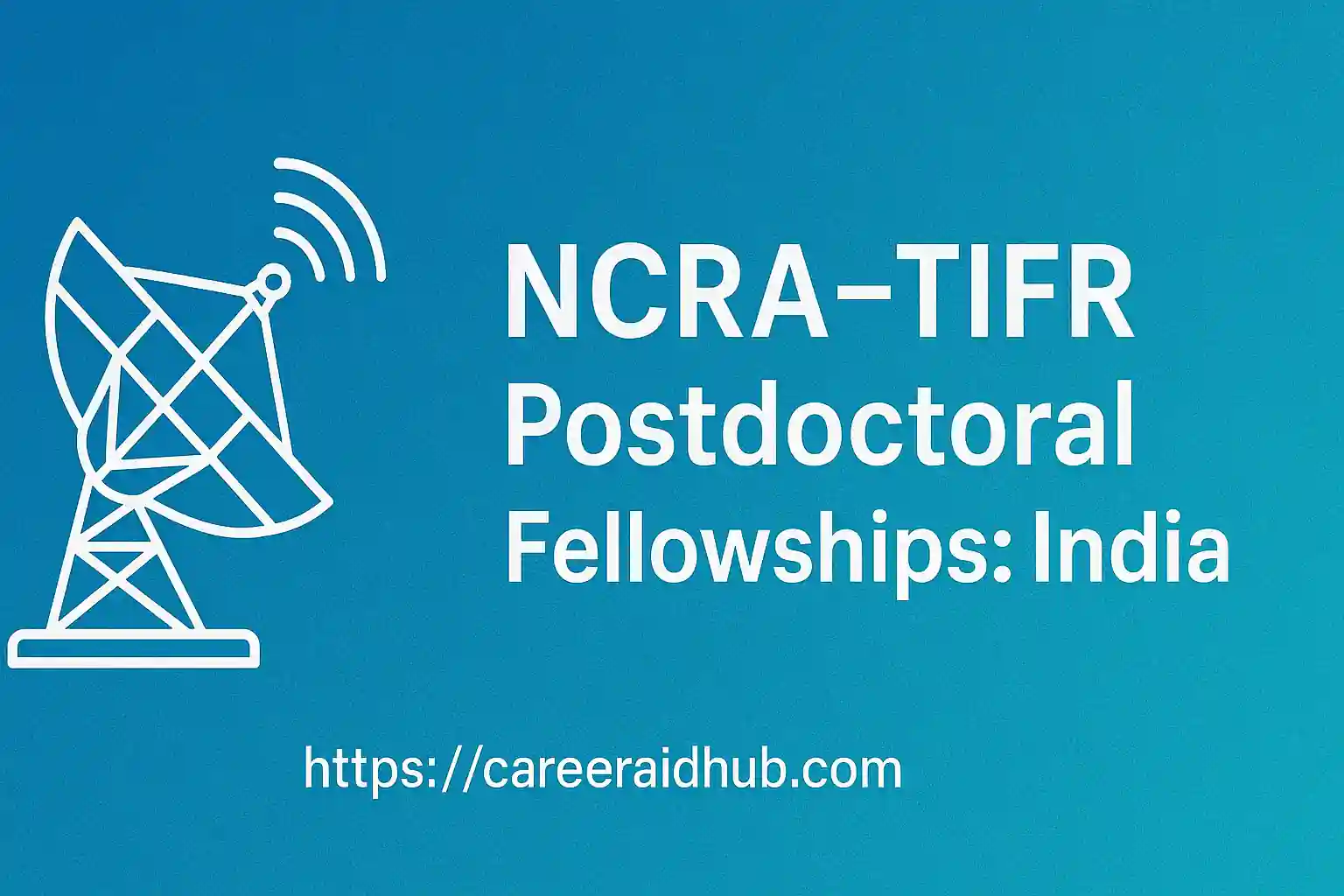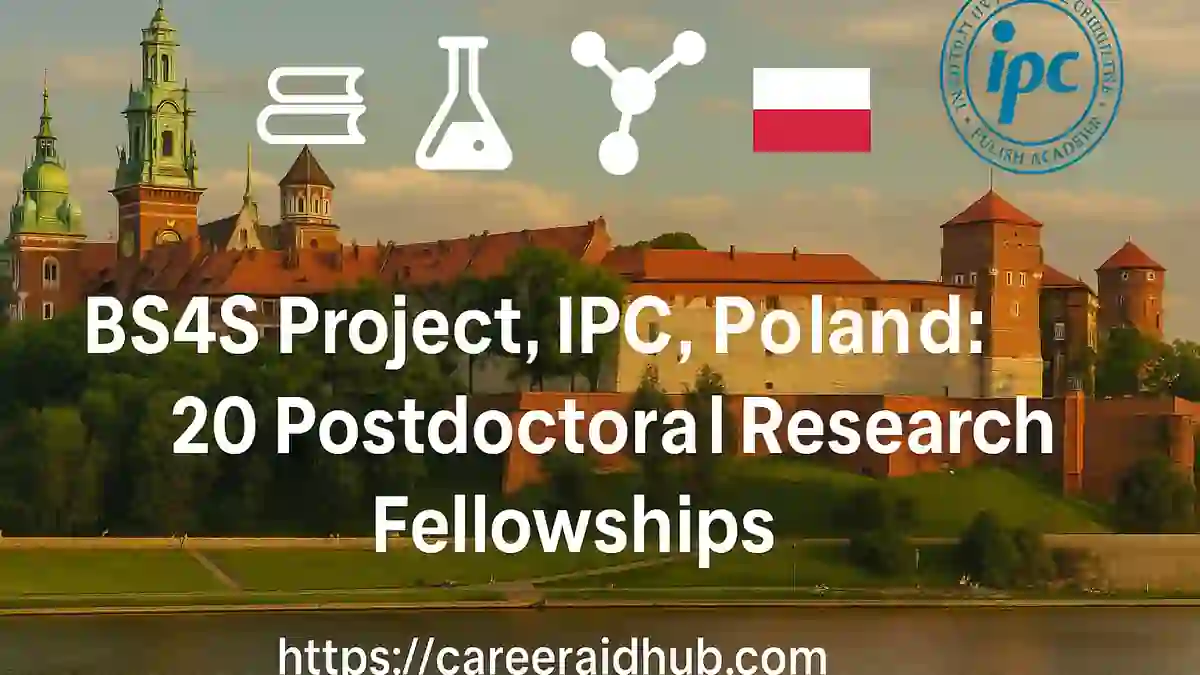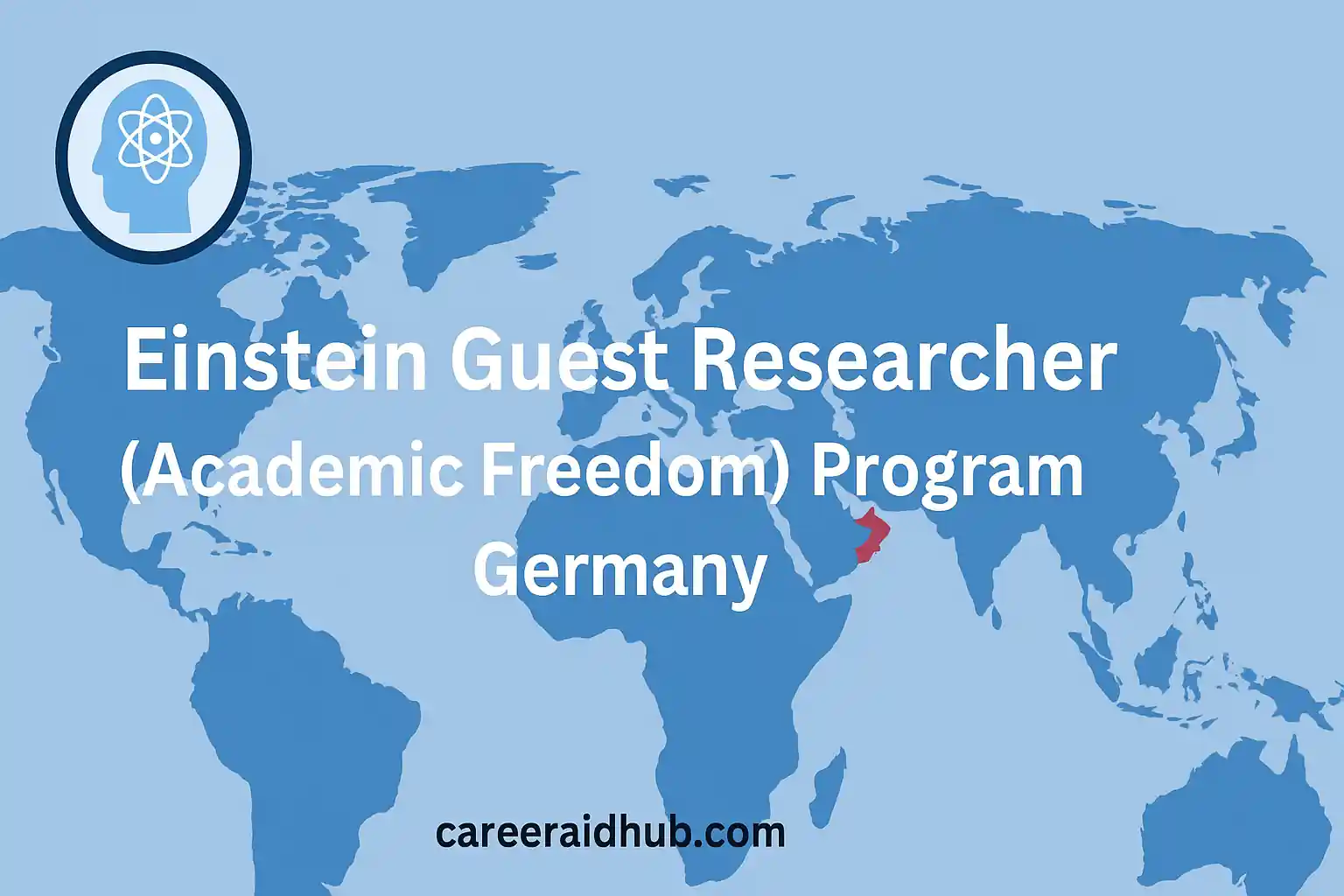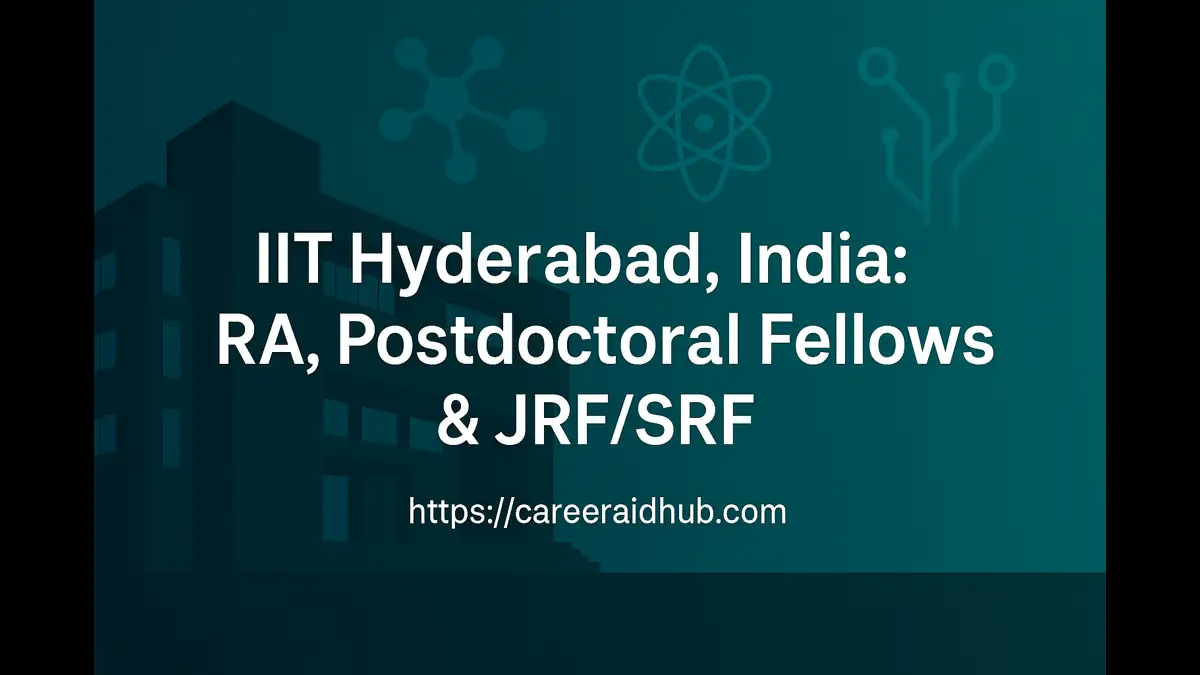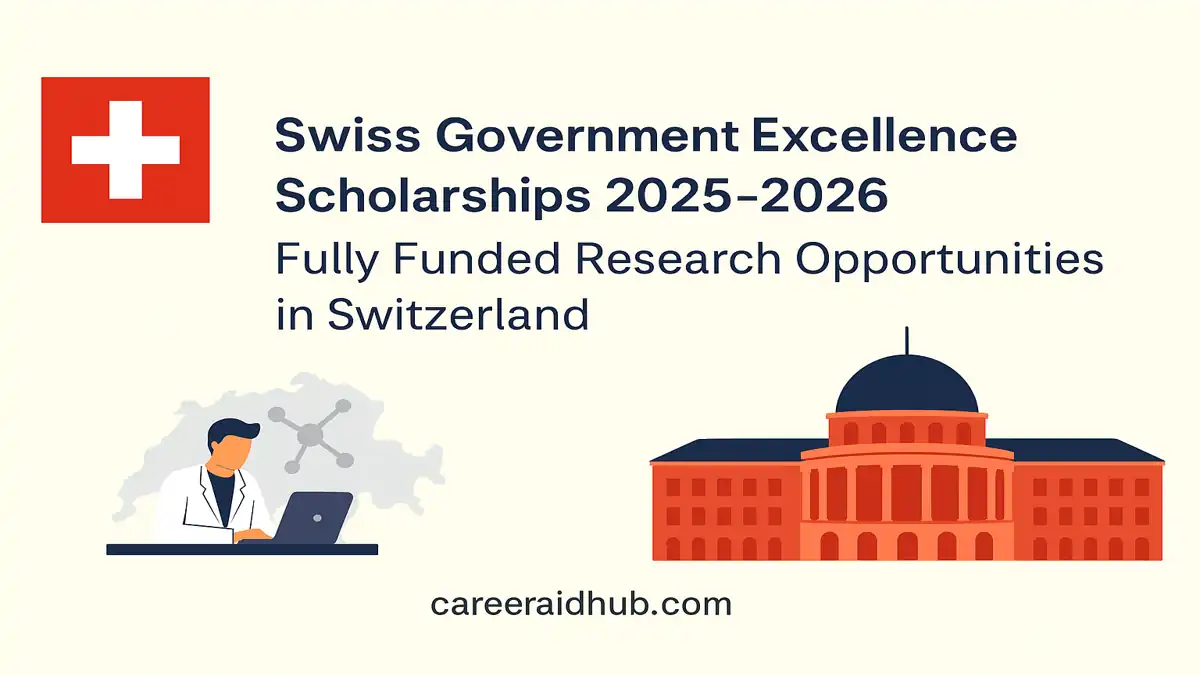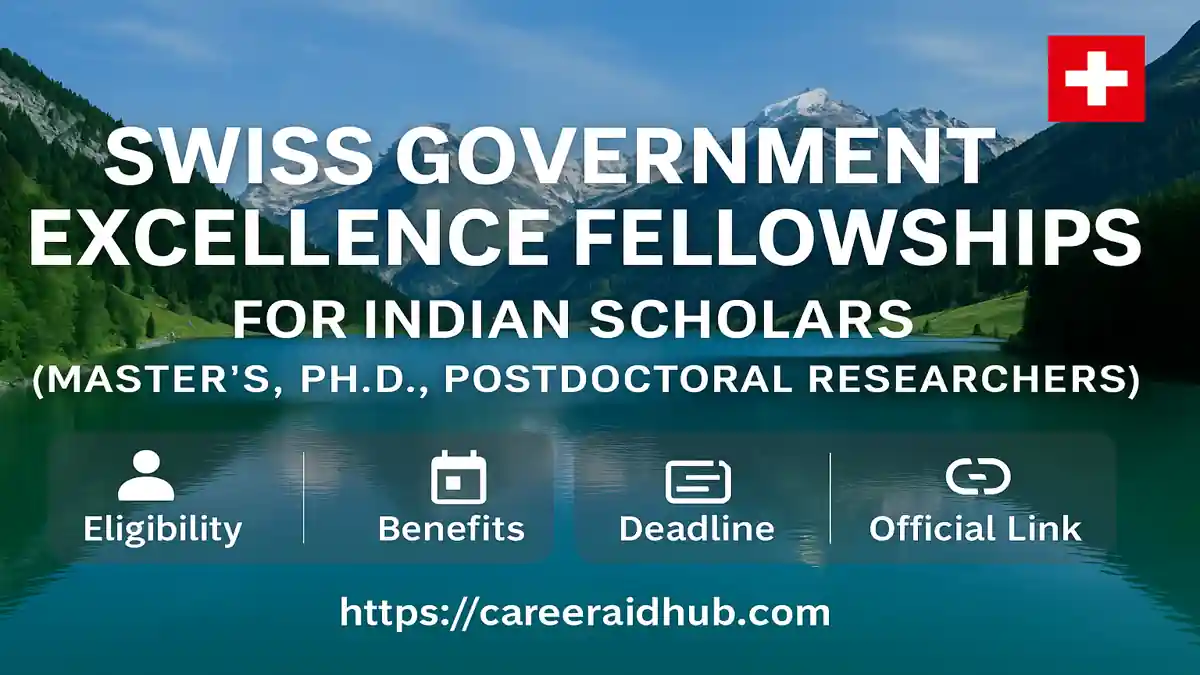The Swiss Government Excellence Scholarships are among the most competitive research awards in Europe, designed to attract exceptional international scholars to Switzerland. Administered by the Federal Commission for Scholarships for Foreign Students (FCS/ESKAS), these fellowships promote academic cooperation and foster long-term international partnerships. They support doctoral, postdoctoral, and artistic research across Switzerland’s world-renowned universities and institutes.
For postdoctoral scholars, the fellowship represents a chance to gain access to Switzerland’s advanced infrastructure, interdisciplinary collaborations, and highly ranked institutions such as ETH Zürich, EPFL Lausanne, and the University of Basel.
The Swiss Government Excellence Postdoctoral Scholarships empower outstanding international researchers to conduct advanced projects at leading Swiss institutions. Offering a stipend, health insurance, and academic immersion, this program enhances global collaboration and research excellence. It is a prestigious, competitive opportunity designed to foster innovation, exchange, and scholarly leadership in Switzerland.
Postdoctoral Track: Key Features
The postdoctoral scheme is structured to ensure that international researchers can fully dedicate themselves to a one-year residency in Switzerland. Below is an overview of the most important features:
| Feature | Details |
|---|---|
| Awarding body | Federal Commission for Scholarships for Foreign Students (FCS/SERI). |
| Eligible institutions | Swiss universities, Federal Institutes of Technology (ETH Zürich, EPFL), universities of applied sciences, and public research centers. |
| Duration | Typically 12 months, non-renewable |
| Monthly stipend | CHF 3,500 per month, designed to cover living expenses. |
| Additional benefits | Health insurance (for non-EU/EFTA researchers), one-time housing allowance (CHF 300), Swiss Half-Fare public transport card, and in some cases, return airfare. |
This package not only supports the fellow financially but also ensures smooth integration into Switzerland’s high-cost research environment.
Eligibility Criteria
Eligibility is both general and track-specific. Meeting all conditions is critical for consideration.
General Requirements
Applicants must hold citizenship outside Switzerland. Certain exceptions exist for EU/EFTA applicants, but conditions differ.
Candidates must not have previously received a Swiss Government Excellence Scholarship.
Applicants should possess the required language skills in English, German, French, or Italian, depending on their host institution.
Full-time residency in Switzerland during the scholarship period is mandatory.
Postdoctoral-Specific Requirements
PhD Completion Window: The doctoral degree must have been awarded between January 2023 and July 2026 (up to June 2026 for ETH Zürich applicants).
Host Supervisor: A Swiss professor must agree to act as academic host, confirmed with a signed support letter and CV.
Restriction on Previous Supervisors: The host professor cannot be the applicant’s PhD supervisor or co-supervisor in a joint degree program.
Full Commitment: Research must be conducted in Switzerland; prolonged fieldwork abroad is generally not supported.
These requirements ensure that the program maintains a fair, competitive standard while encouraging mobility and fresh academic perspectives.
Application Process and Timeline
The application procedure follows a clear cycle, although deadlines vary by country.
Annual Timeline
Call for Applications: Announced each year in early August.
Submission Deadline: Deadlines differ by country, but most fall between October and December.
Document Requirements include:
Copy of PhD diploma or proof of recent defense.
A detailed research proposal with milestones achievable within one year.
Letter of support and CV from the host supervisor.
Applicant’s academic CV, publication list, and two to three reference letters.
Confirmation of admission (if required by the host institution).
Language proficiency evidence when relevant.
Selection Stages: First reviewed by Swiss embassies and
national panels, then assessed by FCS based on academic quality, originality, and feasibility.Decision Notification: Applicants are usually informed by May, with fellowships commencing in September.
Next Cycle
The 2026–2027 cycle will follow a similar timeline, with the call expected in August 2025. Country-specific deadlines will be confirmed later; we will update once official details are released.
Advantages and Limitations
Advantages
Prestige: Recognition by the Swiss government and association with world-class institutions.
Financial Security: CHF 3,500/month stipend plus health and travel allowances mitigate Switzerland’s high costs.
Infrastructure: Access to cutting-edge laboratories, libraries, and interdisciplinary collaborations.
Networking: Exposure to leading Swiss and international scholars, fostering global academic connections.
Mobility Support: Housing and transport subsidies make the transition smoother.
Limitations
Short Duration: Only 12 months and non-renewable, requiring careful project design.
Fieldwork Restrictions: Research outside Switzerland may not be covered.
Intense Competition: Highly selective, with thousands of applicants annually.
Living Costs: While stipends are generous, Switzerland remains one of the most expensive countries in Europe.
Administrative Barriers: Visa, residence permits, and insurance arrangements can be time-consuming.
Practical Tips for a Strong Application
Engage with Potential Hosts Early: Secure a committed supervisor and highlight their resources in your proposal.
Craft a Focused Proposal: Define clear research goals, achievable within 12 months, and outline measurable outputs.
Demonstrate Value of Swiss Context: Explain why Switzerland is essential to your project—laboratories, archives, or specific collaborations.
Show Past Achievements: Highlight strong publications and conference contributions to prove research maturity.
Understand Local Requirements: Some embassies request extra forms or notarized documents; missing these can disqualify you.
Secure Strong Recommendations: Seek referees who can emphasize your independence, leadership, and potential for impactful scholarship.
Program at a Glance
| Feature | Details |
|---|---|
| Program Name | Swiss Government Excellence Postdoctoral Scholarships |
| Host Country | Switzerland |
| Funded By | Swiss Confederation via the Federal Commission for Scholarships (FCS) |
| Duration | 12 months, non-renewable |
| Study Mode | Full-time, in-residence |
| Eligibility | International postdoctoral researchers who completed PhD between Jan 2023 – Jul 2026 |
| Financial Support | CHF 3,500/month, health insurance, travel and housing allowance |
| Fields of Study | All academic disciplines |
| Deadline | October–December (country-specific; exact dates updated soon) |
| Official Website | Swiss Government Excellence Scholarships |
Conclusion
The Swiss Government Excellence Postdoctoral Scholarships represent one of the most distinguished opportunities for early-career researchers worldwide. They provide not only financial support but also access to Switzerland’s thriving academic ecosystem, where innovation and interdisciplinary research thrive. For international scholars seeking to strengthen their academic careers, this fellowship is a powerful stepping stone to global impact (official source).
To maximize success, applicants should prepare early, secure strong institutional support, and tailor their proposals to the one-year timeframe.
Frequently Asked Questions (FAQs)
It is a one-year fully funded program that supports international postdoctoral researchers to conduct advanced research at Swiss universities and institutes.
International researchers who completed their PhD within the last three years and meet host institution requirements can apply for the postdoctoral scholarship.
The postdoctoral fellowship lasts for 12 months and is not renewable. Applicants must complete their proposed research within this period.
The scholarship provides CHF 3,500 monthly, health insurance, housing allowance, travel discounts, and sometimes airfare assistance, ensuring adequate support during the stay in Switzerland.
Deadlines vary by country, usually between October and December each year. Applicants should confirm the exact date with the Swiss embassy in their country.
Yes. Applicants must secure a Swiss host professor who provides a signed support letter and agrees to supervise the research project throughout the fellowship.
No. The fellowship is strictly limited to 12 months and cannot be extended or renewed. Applicants must plan achievable goals within this timeframe.
All academic fields are eligible, including sciences, engineering, social sciences, arts, and humanities, provided the host institution in Switzerland agrees to support the project.
Applicants must prepare documents including a research proposal, supervisor letter, CV, PhD certificate, and references, then submit through the Swiss embassy in their home country.

